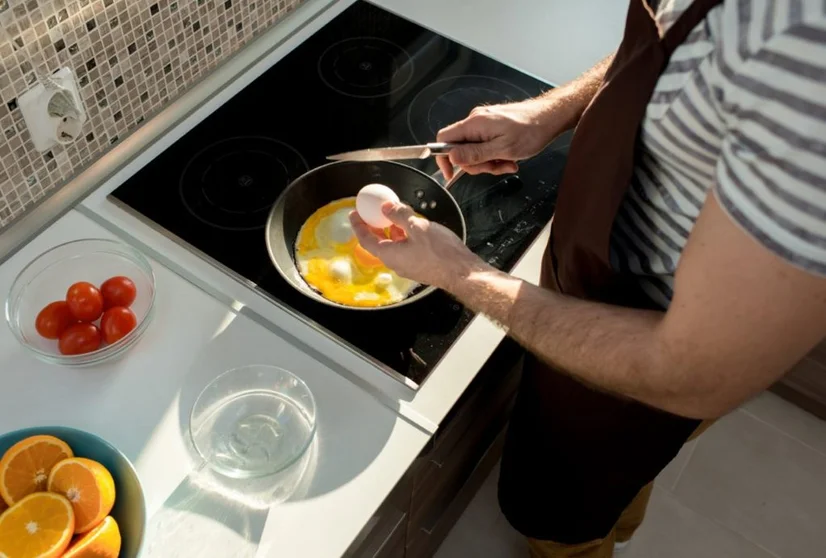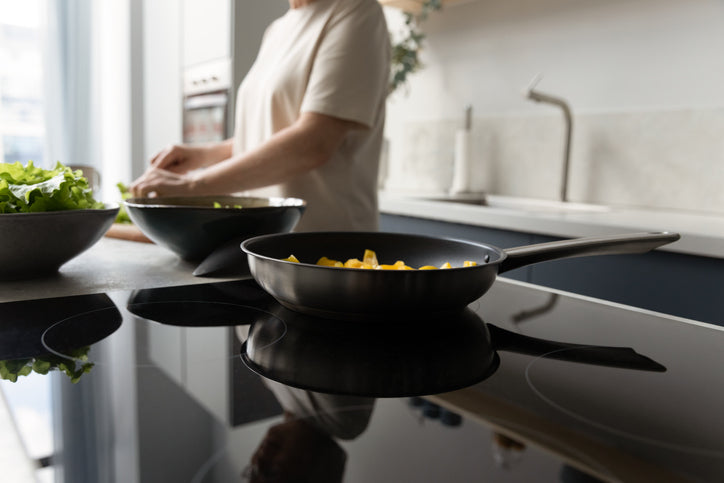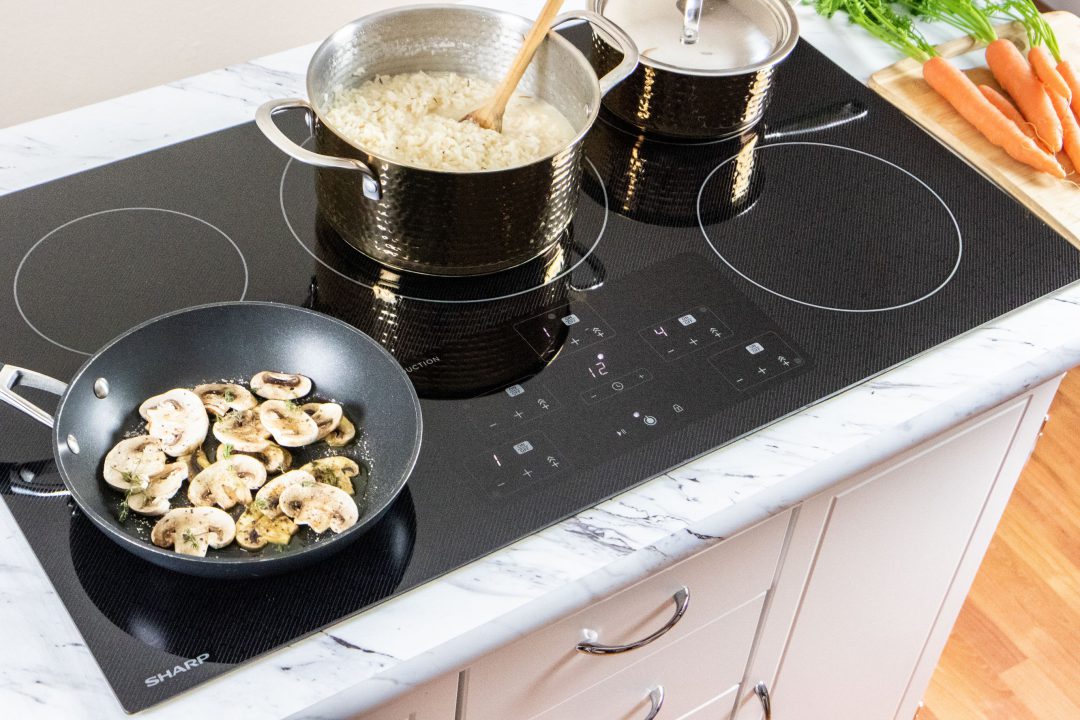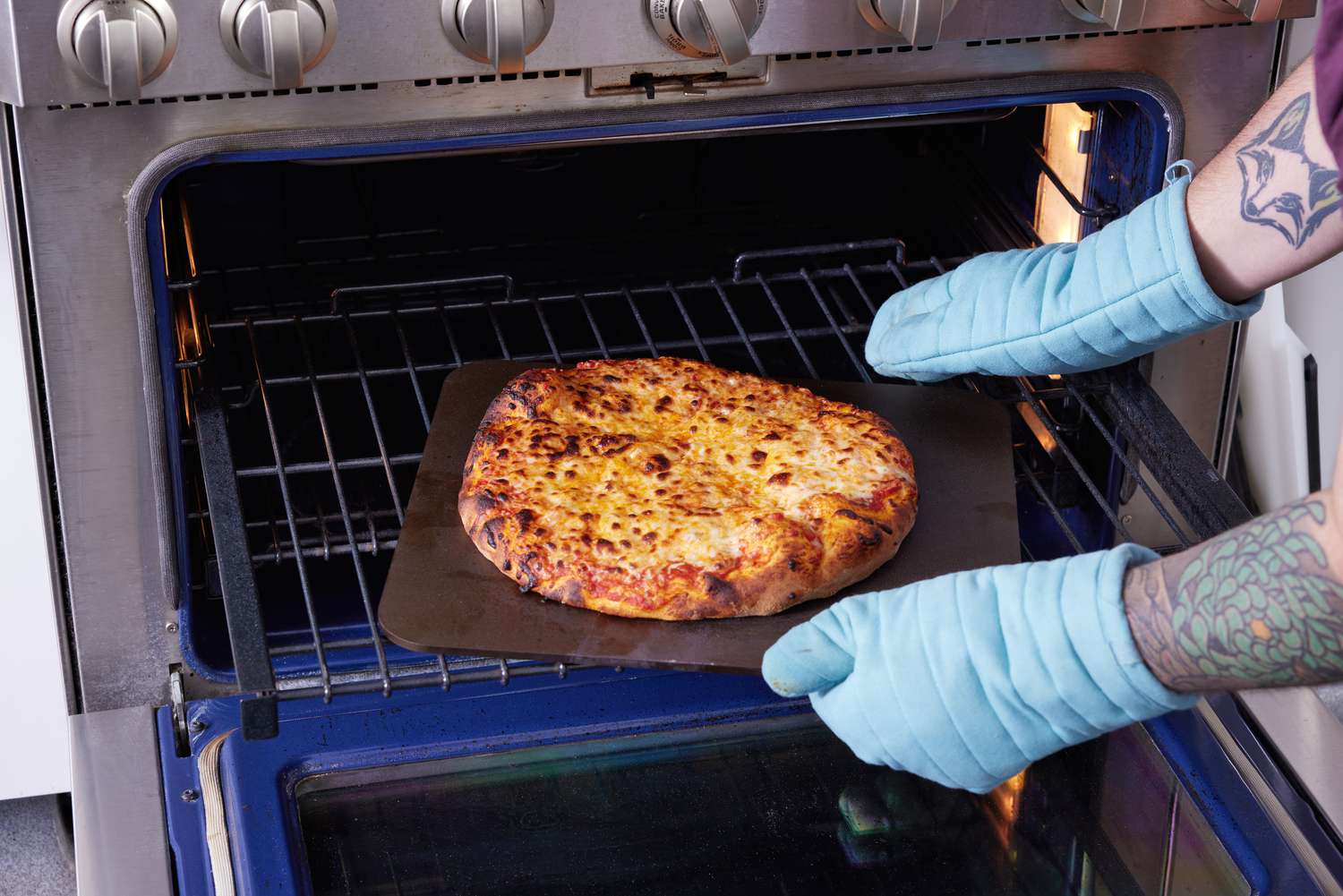As a kitchen professional, choosing the right cookware is crucial for the efficiency and quality of your culinary creations. The debate between cast iron vs stainless steel on induction cooktops is a common one, and understanding the strengths and weaknesses of each can help you make an informed decision.
Both cast iron and stainless steel have their unique characteristics that make them suitable for induction cooking. In this article, we'll dive deep into the nuances of using these materials on induction cooktops, helping you choose the best option for your kitchen needs.

Understanding Induction Cooktops
Before we delve into the comparison, it's essential to understand how induction cooktops work. Unlike traditional gas or electric stoves, induction cooktops use electromagnetic fields to directly heat the cookware. This means that the cookware itself must be made of a ferrous material that can conduct the magnetic field.
For a more detailed explanation on how induction cooktops function, you can visit Home HowStuffWorks. This understanding is crucial when selecting the appropriate cookware for your kitchen.
Cast Iron on Induction
Cast iron is a favorite among many chefs for several reasons. Its excellent heat retention and even heating make it ideal for slow-cooked dishes and searing meats. When it comes to induction cooking, cast iron is highly compatible due to its ferrous nature.
One of the advantages of using cast iron on induction is its ability to maintain a steady temperature, which is perfect for recipes requiring consistent heat. However, cast iron is heavy and can be cumbersome to handle, especially in a busy kitchen setting.
Additionally, cast iron requires regular maintenance to prevent rust and to keep the seasoning intact. This can be a downside for kitchen professionals who prefer low-maintenance equipment. To learn more about the compatibility of cast iron with induction cooktops, refer to Field Company.
Stainless Steel on Induction
Stainless steel cookware is known for its durability and resistance to rust and corrosion. It's a popular choice in many professional kitchens due to its sleek appearance and ease of cleaning. When it comes to induction cooking, not all stainless steel is created equal.
For stainless steel to work on an induction cooktop, it must have a magnetic base. Some stainless steel pans are layered with aluminum or copper, which can improve heat distribution but may not work with induction unless they have a magnetic layer.
The main benefits of stainless steel are its lightweight nature and minimal maintenance. However, it doesn't retain heat as well as cast iron, which can be a consideration depending on your cooking needs. For more on the nuances of stainless steel on induction, check out Consumer Reports.
Comparing Performance in Professional Kitchens
In a professional kitchen, efficiency and speed are paramount. Induction cooktops are praised for their quick heat-up times and precise temperature control, making them a favorite among chefs.
When comparing cast iron vs stainless steel on induction, consider the type of dishes you frequently prepare. For instance, if your menu includes a lot of searing and slow cooking, cast iron might be the better choice. On the other hand, if you prioritize quick, even cooking and easy cleanup, stainless steel could be more suitable.
To explore more about the performance of different cookware materials in professional settings, you can visit culinary blogs like Culina Cooks.
Conclusion: Making the Right Choice
Ultimately, the decision between cast iron vs stainless steel on induction hinges on your specific kitchen requirements and personal preferences. Both materials offer distinct advantages and can enhance your cooking experience when used correctly.
Consider the type of dishes you frequently cook, the maintenance you're willing to undertake, and the overall workflow of your kitchen. By doing so, you can select the cookware that not only complements your cooking style but also optimizes your kitchen's performance.

FAQs
Is cast iron suitable for all types of induction cooktops?
Yes, cast iron is compatible with all induction cooktops due to its ferrous nature. However, its weight and rough surface can potentially scratch some glass cooktops, so handle with care.
Can I use any stainless steel pan on an induction cooktop?
No, not all stainless steel pans are suitable for induction cooking. Ensure that your stainless steel cookware has a magnetic base to work effectively on an induction cooktop.
Which is more energy-efficient: cast iron or stainless steel?
Both materials are energy-efficient on induction cooktops. However, stainless steel tends to heat up and cool down faster, which can lead to more energy savings in a professional kitchen setting.






Leave a comment
This site is protected by hCaptcha and the hCaptcha Privacy Policy and Terms of Service apply.